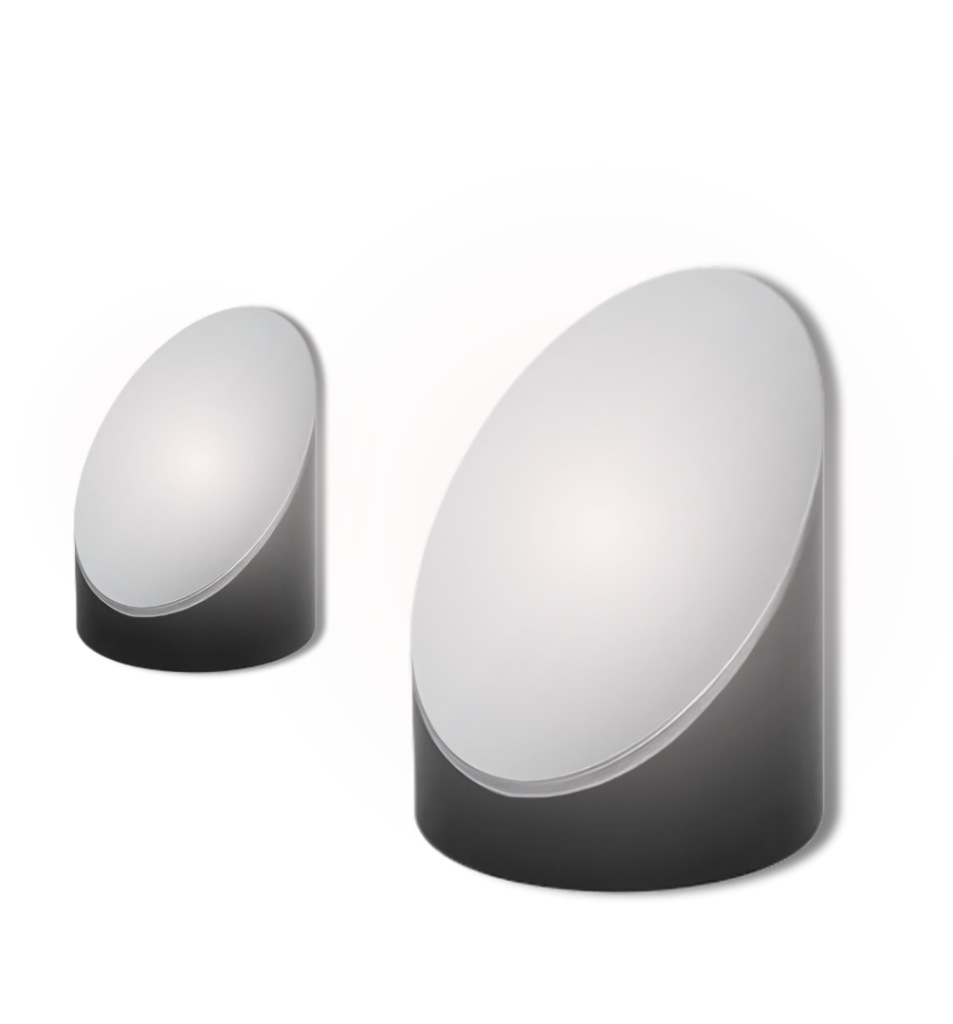
Off-Axis Parabolic (OAP) Mirrors are precision optical components designed to focus or collimate light without introducing spherical aberrations. Unlike traditional parabolic mirrors, OAP mirrors are cut at an angle, enabling unobstructed access to the focal point. This makes them ideal for applications requiring high precision, minimal distortion, and compact optical designs.
OAP Mirrors are vital in industries where precision optical performance is critical. Here are some key applications:
– Telescope optics and beam steering in satellite systems.
– Laser communication systems.
– Point-of-care imaging systems.
– Advanced surgical optics and diagnostic instruments.
– UV, visible, and IR spectroscopy setups for research and industrial use.
– Focused light collection for fluorescence and Raman spectroscopy.
– High-energy laser focusing and collimation.
– Beam shaping for laser cutting and welding.
– Test and measurement equipment.
– Optical systems for scientific experiments and engineering prototypes.

OAP Manufacturing Details | ||
Parameter | Specification | Notes |
Material Options | Fused Silica, Zerodur®, Aluminum, Silicon | Choice of substrate depends on application |
Diameter Range | 10 mm to 300 mm | Custom sizes available upon request |
Surface Quality | 20-10 Scratch/Dig | High precision for minimal scattering |
Focal Length | 10 mm to 1,500 mm | Wide range to suit diverse setups |
Surface Accuracy | λ/10 @ 632.8 nm | Ensures superior optical performance |
Coating Options | Protected Gold, Enhanced Silver, Dielectrics | Optimized for wavelength-specific reflectivity |
Reflectivity | >98% (customizable) | Depends on the coating type |
Wavelength Range | 200 nm – 20 µm | UV to IR applications supported |
Temperature Resistance | -50°C to +300°C | Stable performance under extreme conditions |
Customization | Shape, size, coating, and mounting | Tailored to specific industry needs |